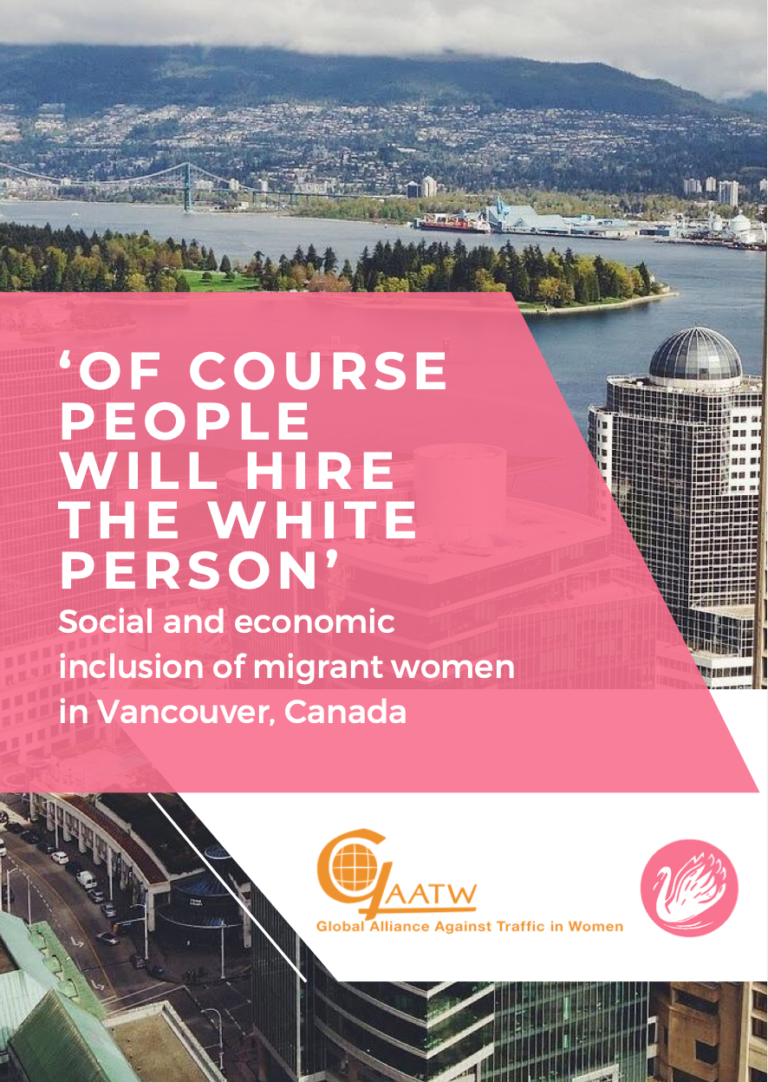In 2020, the Global Alliance Against Traffic in Women (GAATW) initiated a research project to document migrant and trafficked women’s experiences with social and economic inclusion. Some of the questions we sought to answer included: what work, education, and training opportunities are available to migrant and trafficked women in countries of destination or upon return to the country of origin? Are these relevant to the local labour market or do they reinforce gender stereotypes and condemn women to a life of low-wage work? What barriers prevent women from enjoying productive, well-paid, and rewarding work? What, if any, government assistance is available to them? How do women articulate their own ambitions and desires with regards to their work and social life?

